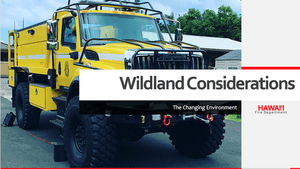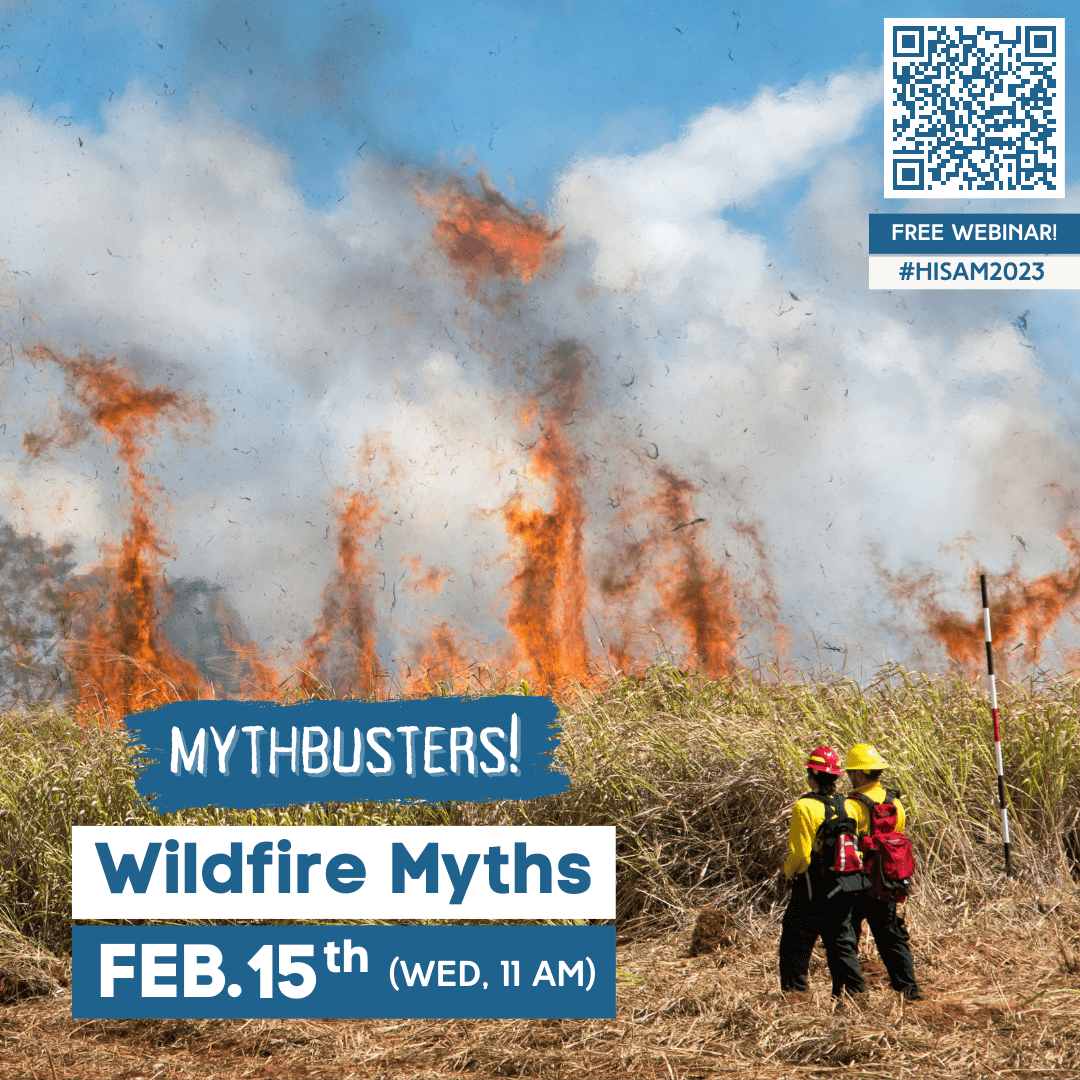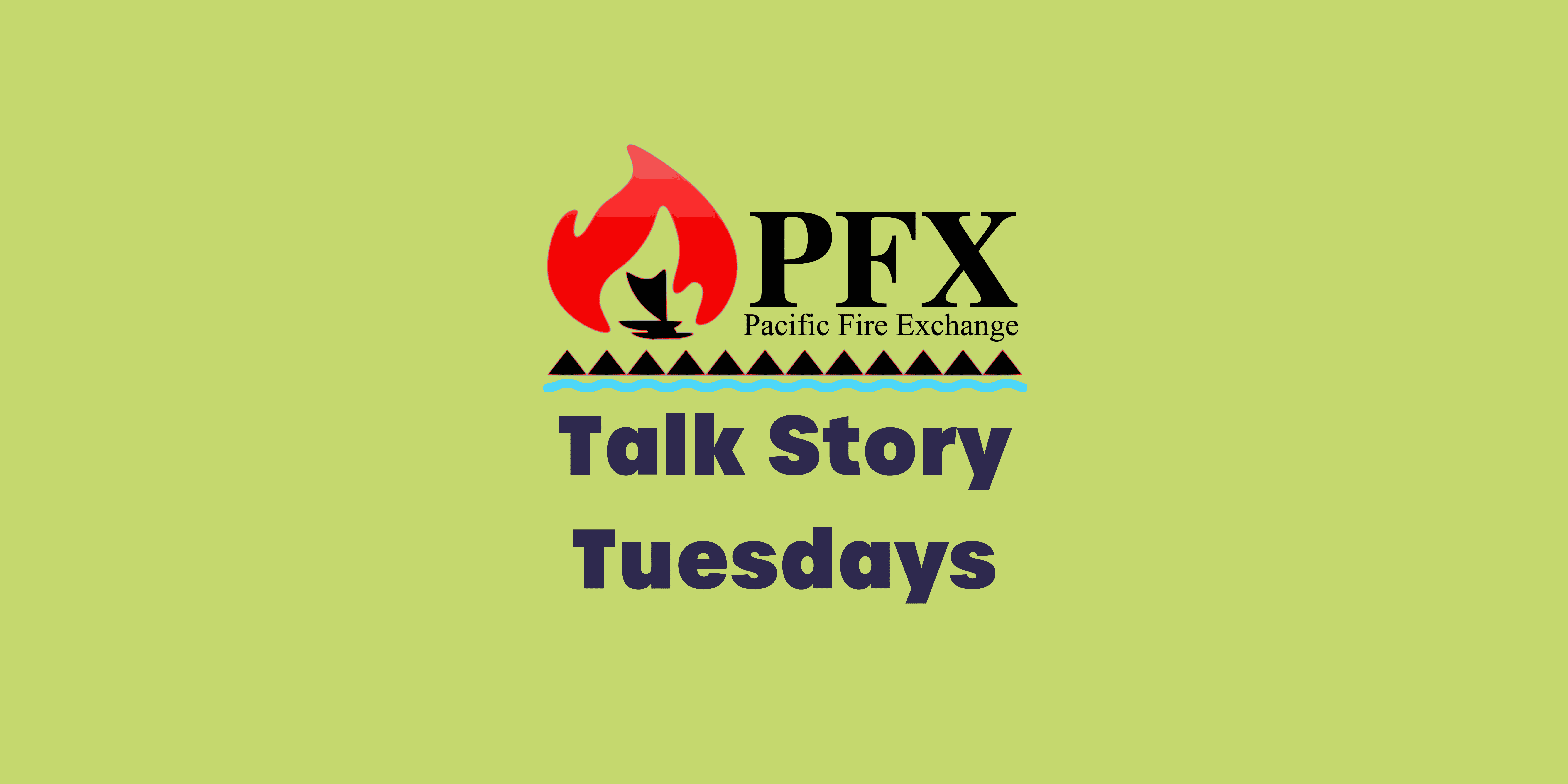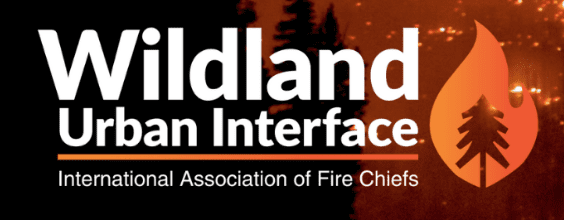
Presentation: Guam’s Wildfire Outlook (2022)
Christine Fejeran, Guam Department of Agriculture, Forestry and Soil Resources Division describes the wildfire threats to ecosystems and people on Guam, the on-going education challenges, and hopes for the future.

Presentation: Wildland Considerations–A Hawai‘i Island Firefighter’s Perspective
Eric Moller, Deputy Chief of Hawai‘i County Fire Department shares his perspective of the changing fire regimes in Hawai‘i, current challenges and how we can help.

Webinar: Fuzzy Cognitive Mapping
Rachael Cleveland will demonstrate the utility of a decision support tool called Fuzzy Cognitive Mapping (FCM) which enables all stakeholders to create a "mental map" that can capture and compute…

Talk Story Tuesdays: Grazing to Reduce Blazing
What: In this Pacific Fire Exchange talk story Q&A session, we round up the latest research, past and present for managers and landowners wanting to understand more about how our…

Webinar: Mythbusters! Wildfire myths in Hawai`i
As part of Hawai‘i Invasive Species Awareness month, Elizabeth Pickett focus on wildfire myths in Hawaii.

Talk Story Tuesdays: Grazing to Reduce Blazing Part II
WATCH PART 1 TALK STORY WATCH PART II TALK STORY DOWNLOAD THE GRAZING TO REDUCE BLAZING FACTSHEET What: In this Pacific Fire Exchange talk story Q&A session, we round up the latest research, past and present for managers and landowners wanting to understand more about how our four-legged friends (goats, sheep, cows, etc.) if managed…

Talk Story Tuesdays: Informing Contemporary Wildfire Science from Historical Hawaiian Language Newspapers
Dr. Clay Trauernicht fire & ecosystems scientist with UH Mānoa Cooperative Extension and Dr. Alyssa Anderson, Postdoctoral Fellow, Pacific Islands Climate Adaptation Science Center will present wildfire in Hawai‘i in the context of Hawaiian language 19th century "nupepa" (newspaper), as well as the historical landscape changes of the 20th century.

2023 Wildland Urban Interface Conference
The International Association of Fire Chief’s Wildland-Urban Interface (WUI) conference offers hands-on training and interactive sessions designed to address the challenges of wildland fire.

Webinar: Changing Climate and Wildfire in Hawaiʻi
What: In this joint webinar hosted by the Pacific Fire Exchange and the Pacific Regional Invasive Species Climate Change, we tackle the climate crisis in Hawai`i and how this affects the risk of wildfire as well as the impacts to people and the archipelago's unique resources. When: April 12, 2023 at 2:00 - 3:30 pm…

Talk Story Tuesdays: Reducing wildfire risk across boundaries – recent projects and lessons learned
Members of our community from three islands will talk about their efforts in reducing the threat of wildfire across boundaries. Robbie Justice of Forest Solution, Inc. on Hawai‘i Island, Jeremie Makepa of ‘Āina Alliance on Kaua‘i, and Erin Peyton of Paniolo Hale Firewise Committee on Moloka‘i share their lessons learned in reducing hazardous fuels and how agencies, landowners and residents can work together collectively.
